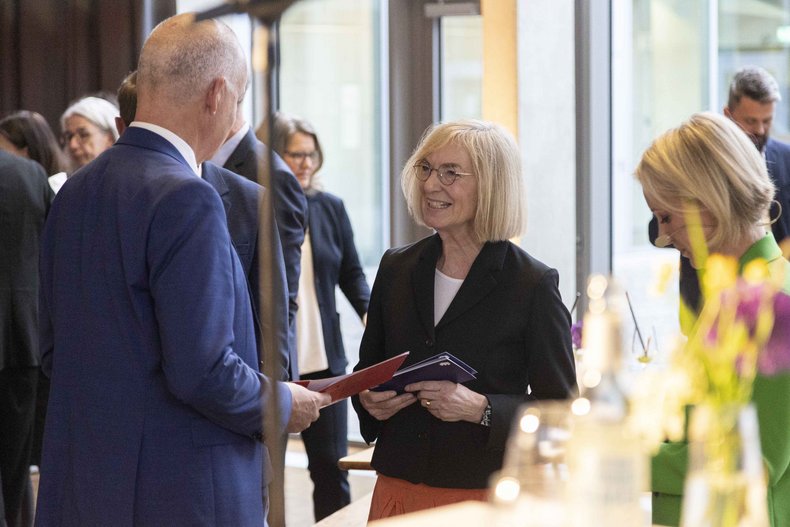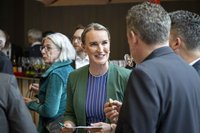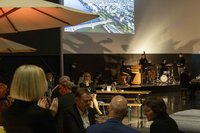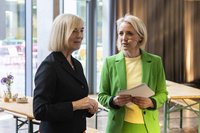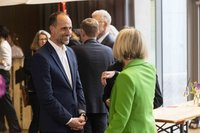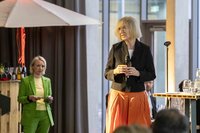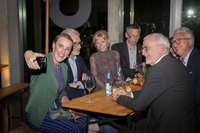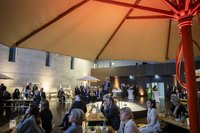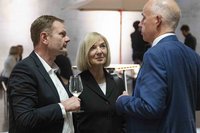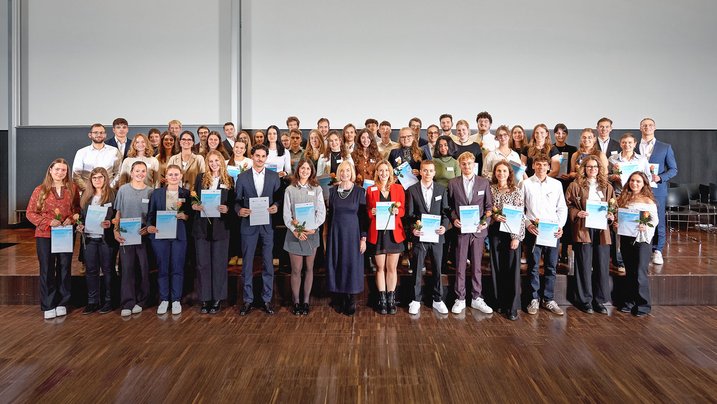Between May 7 and 9, the German Science and Humanities Council held one of its spring meetings in Mainz. One of the topics discussed by the members of the Council was research security and the relevance of security. One item on their meeting agenda was the university reception on May 7th, which took place in the auditorium of Mainz University of Applied Sciences and was based on the atmosphere of the Mainz “Marktfrühstück” or market breakfast.
The German Science and Humanities Council advises the federal government and the governments of the states on any questions pertaining to the content and structural development of science, research and higher education.
Prof. Dr. Susanne Weissman, President of Mainz University of Applied Sciences, and Prof. Dr. Georg Krausch, President of Johannes Gutenberg University Mainz, welcomed the guests and emphasized the important role of their universities in the region in their respective remarks. They emphasized how essential collaboration with other institutions and companies is in fostering research and innovation.
Prof. Dr. Julia Arlinghaus, Chairwoman of the Scientific Commission of the German Science and Humanities Council, emphasized the importance of preserving and passing on empirical knowledge. Prof. Dr. Eckhard Thines, the State Biotechnology Coordinator, explained in a keynote speech what the state of Rhineland-Palatinate has already done and what its future goals are to establish the state as an internationally significant biotechnology center.
The jazz band “Benedikt Fröhlich Quartett” from the Mainz School of Music provided the musical accompaniment for the evening. SWR journalist Anna Lena Dörr moderated the event.
